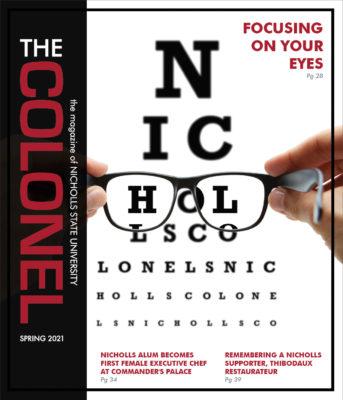 Dr. Chester Weimer (BS ’75)
Dr. Chester Weimer (BS ’75)
33 years in practice | Urology | Thibodaux Urology Specialists
“I originally went to Nicholls to study math, then changed my major to pre-med after working part time at Thibodaux Regional. The biology foundation I got from Nicholls made medical school a lot easier. I didn’t have to go back and learn things; I had already been taught the basics.”
Technology has dramatically changed how we practice medicine. When I was in medical school and residency, CAT scans were just being developed, and ultrasound was primitive. Today, we commonly treat kidney stones with Shock Wave Lithotripsy, a nonsurgical technique for breaking the stone into fragments, but before lithotripsy was available, kidney stones often required open surgery.
I remember way back when, I had a patient with a stone blocking the flow of urine from his right kidney to the bladder. The patient had undergone multiple previous surgeries, leaving his whole pelvis full of fibrotic tissue. I really couldn’t tell arteries from veins from nerves, and there are a lot of vital structures in the pelvic area. I remember it took 4 1/2 to five hours to finally get the stone because the ureter was so tortuous; in other words, the kidney tube didn’t follow the simple path that it should have. The surgery was successful, but it was real scary, tedious work that would probably only take 35 minutes today.
I also performed the first ureteroscopy in Louisiana. I knew a guy who worked for the company that created the ureteroscope, an instrument that can be passed through the urethra and bladder and look up the kidney tube to find and remove the stone. At the time, there had been no training on how to use this new scope. I told the company rep about one of my cases, and he said let’s see if it works. It did, but it wasn’t without anxiety.
I love practicing urology, but what I really love is treating patients. There’s a lot more to patient care than treating their illness. I try to spend time discussing the issues surrounding the problem — whether it’s anxiety, depression or family conflict. If you just walk in and say you need an operation and then walk out, you miss a lot
— Written by Stephanie Verdin, publications coordinator
This article originally appeared in the fall 2013 issue of Voila! magazine. Click here to read the entire issue.



